These are the 15 questions you should ask before hiring an interior designer to ensure a smooth and stress-free project
Tackling an interior design project can be made much easier when you bring in an expert, but open communication is key to an enjoyable experience. This is what designers wish you'd ask them before the project begins
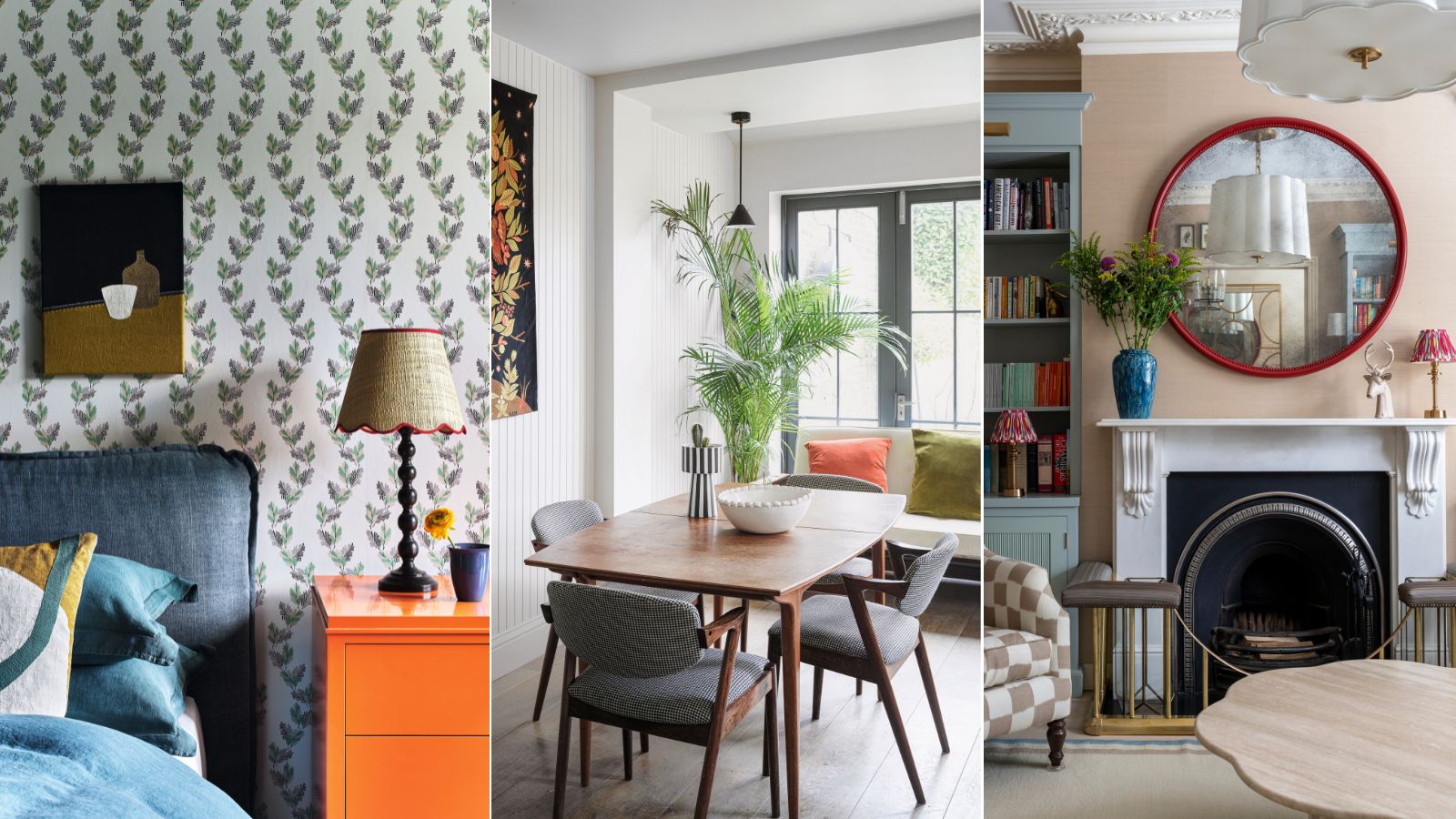
- 1. What is your preferred design style?
- 2. Are our goals for the space in alignment?
- 3. Will we be able to collaborate professionally?
- 4. How will we communicate with one another throughout the project?
- 5. How do you like to collaborate with contractors, architects and clients?
- 6. Who will be my main point of contact during this project?
- 7. When will I need to be available during the project?
- 8. Which aspects of the project do you have control over, and which are outside of your control?
- 9. What is your design training, experience and background?
- 10. Can you show a walkthrough of a previous project, or give me referrals?
- 11. How do you handle pricing and billing?
- 12. How will we ensure the project stays within budget?
- 13. How do you source materials, furniture and other design elements?
- 14. What will the entire design process entail?
- 15. How much time will this project take to complete?

Hiring an interior designer to manage your next home refresh is a smart decision – though you can probably picture what your dream home entails, the experts can handle the details and make those dreams a reality. But if you've never worked with a designer before – or if it's simply been a while – you might not know where to start.
Approaching an expert can be intimidating on its own, and even more so when you're not sure what questions you should be asking. Getting all the details down before jumping head-first into a project is essential – and open communication from the moment you meet with a designer will make the entire process smooth and stress-free.
To compile a definitive list on the questions you should be asking, we spoke to the experts themselves. These are the 15 questions interior designers say you should be asking before hiring a firm to makeover your home. Covering everything from credibility and budget to personal design style, keeping these questions in mind while working with a designer will ensure you're on the same page, no matter what your project entails.
15 questions to ask before hiring an interior designer
Although some considerations are relatively straightforward, a lot goes into a design project, and you might lose track of important details along the way. Interior designers themselves say there's a lot you should be asking before diving in, and the list doesn't end with the timeline and budget. Here are the top 15 questions, organized for easy reference.
'When making a decision about hiring an interior designer, ask them questions about their design and creative process, their sourcing practices, and how they handle billing and pricing for their services. These may seem like no-brainers, but it's very important to be on the same page about the brass tacks,' says Kathy Kuo, interior designer and CEO of Kathy Kuo Home.
Make sure your styles – and personalities – align

Before getting into the details, you'll want to ensure a designer's tastes align with your own personal design style – and the selected projects you see on their website don't necessarily dictate the breadth of their interest and experience. These questions will help you figure out which designer is right for your specific project and personality.
1. What is your preferred design style?
First things first, ask interior designers about how they define their personal design aesthetic. Even if you've given their website and socials a peruse, there's always more to discover – and you may even find that your tastes are more aligned than you thought! After you've narrowed your list down to a few top designers, speak with them more about what they love to design so you're both invested in the project you take on together.
'Ask them about their preferred design style! Previous projects aren’t always the best representation of a designer’s true aesthetic. Maybe they worked with a highly opinionated team on a project, or maybe their design language has evolved over time. It’s a worthy conversation to ensure you’re on the same page,' says Annie Downing, interior designer and founder of Austin-based Annie Downing Interiors.
2. Are our goals for the space in alignment?
You'll also need to consider the project you have in mind, and make sure you and the designer are on the same page about your goals and overall vision. Beyond the aesthetics, think about what you'll use the space for and how it will serve your lifestyle. By communicating these facts to the designer and making sure they're on board, you'll be setting the project up for success.
'I would recommend having a really honest and deep conversation with the designer about your goals for the space and what your needs are in daily life – do you have children or pets? Do you work from home? Do you cook and entertain a lot? – and make sure you feel genuine alignment. The design project needs to be about you feeling safe, loved, and nurtured in your space – it should not be about the designer's ego or them imposing their own style on you,' adds Kathy.
Arezoo Shafizadeh, senior interior designer for New York City-based Ben Herzog Architect, adds that the more you're able to share about your 'lifestyle, functional needs, preferences, requirements, desires' and more, the better designers will be able to create a space that you love in the long term.
'Clients should ideally be as honest and realistic as possible with themselves with regards to their responses. Similarly, if they are aware of certain issues with their home, it would be helpful to know these ahead of time, rather than discover them during construction when these issues might be disruptive to the design,' says Arezoo.
3. Will we be able to collaborate professionally?
Beyond the practical details, it's important to remember that you'll likely be working with a designer for months (or sometimes, years) on a project, so you'll need to get along. Jessica Cinnamon, principal designer and founder of Jessica Cinnamon Design, suggests following your intuition, paying attention to how your personality melds with that of the designer.
'Whether it a residential project or a larger commercial or hospitality project, establishing a comfortable professional relationship will help the project moving forward,' says Jessica.
Abby Hetherington, principal designer and founder of Abby Hetherington Interiors, agrees, saying that alignment is key when embarking on a design project. Build a rapport with the designer before setting anything in stone to ensure you'll both be happy throughout the entirety of the project.
'Making sure that you are aligned on the timing and budget both initially and throughout the project helps set expectations for both parties and creates a comfortable environment to work in. And remember that your first call or meeting is like a first date – you’ll know right away if you want there to be a second!' Abby says.
Understand how you'll communicate throughout the project
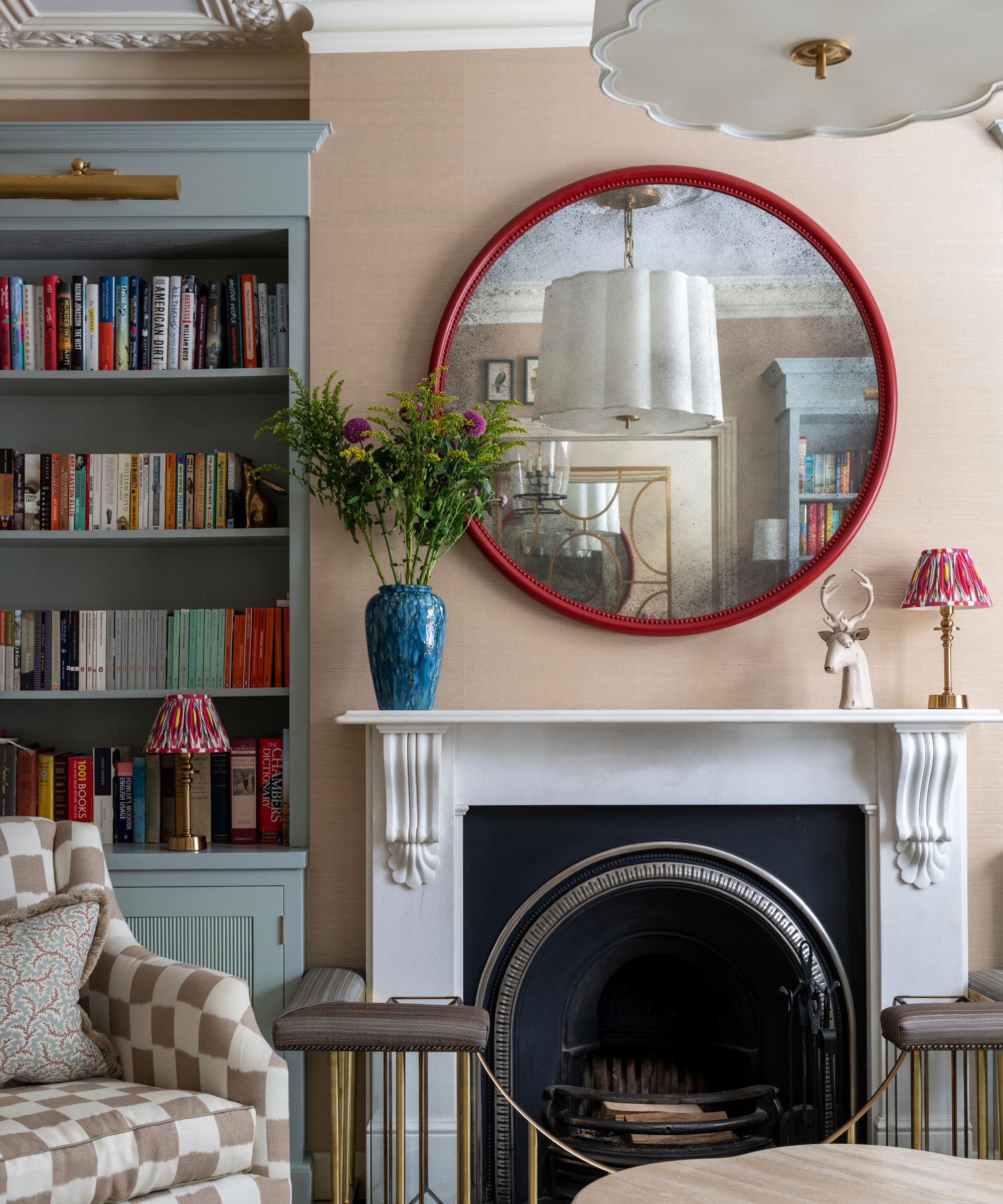
Like in any endeavor, efficient and respectful communication goes a long way. These are the questions you'll be happy you asked ahead of time on the topic of clear communication.
'Good communication between all team members (including clients) is crucial. We encourage clients to be involved and share any ideas they may have (or not), and to keep in mind this is a collaboration, with a shared goal to make the project as successful as possible,' says Arezoo.
4. How will we communicate with one another throughout the project?
Make sure to understand how the designer communicates throughout a project ahead of time so you know what to expect – that way, you'll never left in the dark. Annie suggests asking about their work style, keeping a keen eye on how they like to keep you in the loop.
'A good designer is willing to adapt to the unique needs and dynamics of your project. Still, it’s important to understand the way that your prospective designer likes to work! Ask them how they communicate with their clients, especially regarding critical information like deadlines. Effective communication is vital to a project’s success,' she says.
Arezoo adds that, especially during the design phase of a project, open communication is key to making sure the process goes to plan, for designers and clients both. As a client, you should be open to providing answers to questionnaires, making decisions based on the options provided by the designer and, sometimes, sending over reference photos to clarify your design preferences.
'Responses should be made in a timely manner. Otherwise, it affects the overall timeline and schedule, often to the detriment of the project, as delays end up being costly,' she says.
5. How do you like to collaborate with contractors, architects and clients?
Often, a design project doesn't just involve you and the designer – third parties like architects, contractors and suppliers are vital to the process. Annie says that figuring out how a designer collaborates with these third parties is key.
Some designers work directly with architects and contractors, and facilitate the whole process, while others only offer design services. Make sure you know where your responsibility lies, and what the designer can provide as support.
Arezoo suggests asking how involved the design team is during construction, and if the designer doesn't automatically provide contacts, asking for a list of recommended contractors they've worked with in the past.
6. Who will be my main point of contact during this project?
Though quite a simple question, make sure to ask who your main point of contact will be throughout the design process. If there are multiple points of contact, make sure you understand who those people are and how they prefer to communicate. Knowing this vital information ahead of time will ensure that in times of stress, you're able to ask the right people the right questions, and in the right way.
7. When will I need to be available during the project?
It's also important to understand when you'll need to be available throughout the project. From early planning to the finishing touches, many parts of the process will move more quickly and smoothly if you're present and ready to help. Make sue you have a general idea of what's expected of you beforehand so you're not left and scrambling to let contractors in or losing sleep over a last-minute meeting.
'During the early design phases, we have regular meetings (some virtual and one or two in person) where we show design options and materials. Therefore, clients need to be able to set aside some time and be available for these meetings ... We will need to have access to their home initially to measure everything and periodic access after that to check things, meet with potential contractors and other consultants, and more,' says Arezoo.
8. Which aspects of the project do you have control over, and which are outside of your control?
Though knowing the answer to this question likely won't impact the outcome of your project, Arezoo says you can save yourself quite a bit of stress and frustration by making sure you understand which aspects of the project are within the designer's control, and which aspects are not. Getting upset with the designer because a shipment hasn't arrived isn't productive, and will only strain the design process (and relationship) going forward.
Double check the designer's credibility
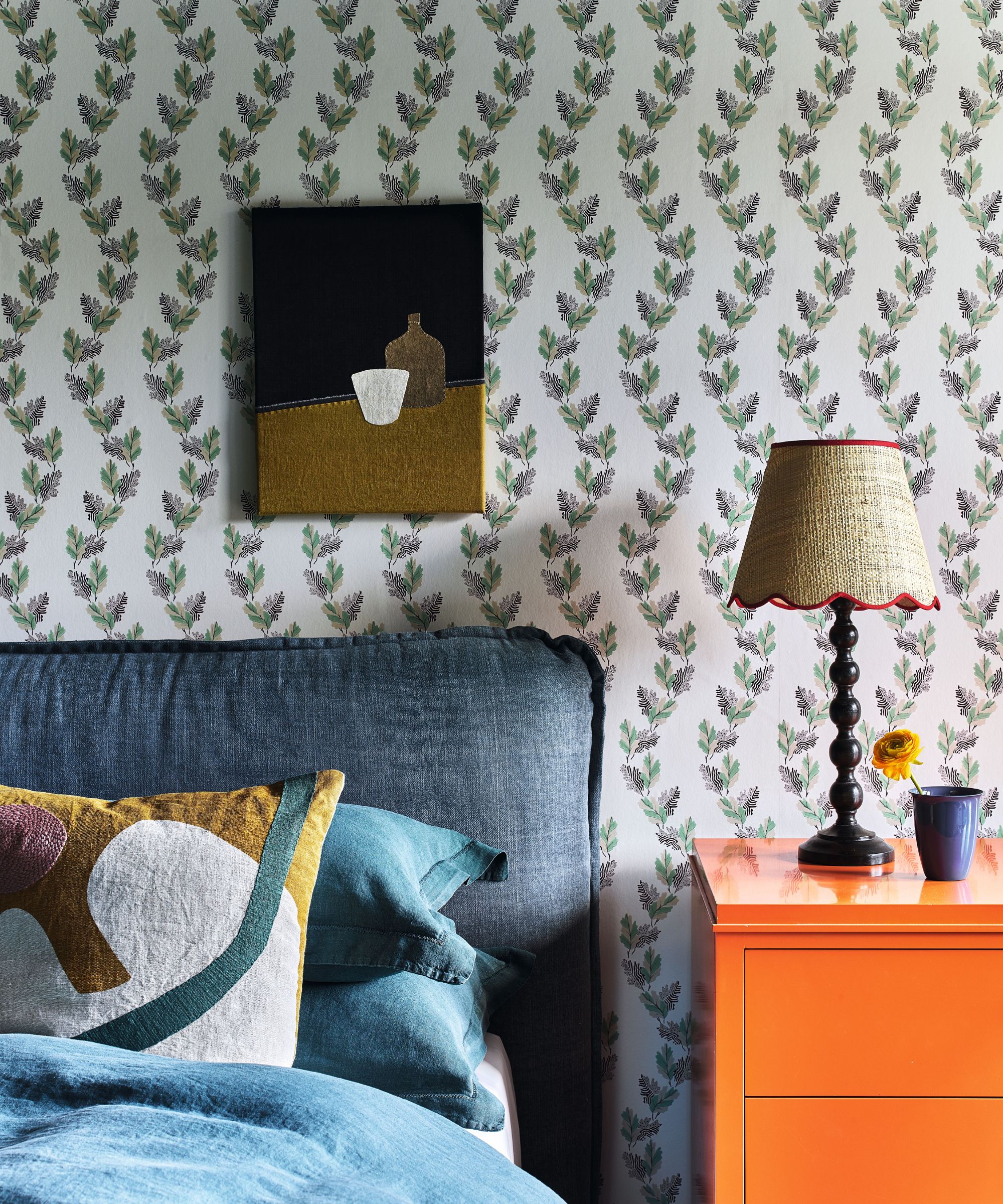
Though the majority of designers out there are legitimate and have worked incredibly hard to build their business, it's important to have a bit of a critical eye when deciding who to work with. Make sure you do a bit of investigation into your designer's past, and how their background might help them to tackle your project.
9. What is your design training, experience and background?
'A client should ask first about the training and experience of the designer. Find out if their experience aligns with the scope of your project,' says Jessica. Have a bit of a look into the experience that's led the designer to work with their current firm, and any education they use in their current role.
Arezoo also suggests asking about specific projects that are similar to the one you'd like to embark on. While a designer might be award-winning and great at their job, it's still possible that your project is well outside of their comfort zone.
10. Can you show a walkthrough of a previous project, or give me referrals?
After checking out the designer's past, it's also smart to have a closer look at their finished projects. Arezoo suggests asking for a walk-through of a finished project, or one that's under construction, so you can get a first-hand look at how they handle design projects. Kate Winnington, principal designer at C&E Furniture, also suggests taking a bit of a critical eye to the designer's past projects.
'It's really important when talking with potential designers that you take the time to review their portfolios. It's one thing to make a beautiful website or create content for Instagram, but it's something entirely different to execute a comprehensive design to fruition. You want someone with a proven track record that represents an aesthetic you want,' says Kate.
Know how they'll handle the finances
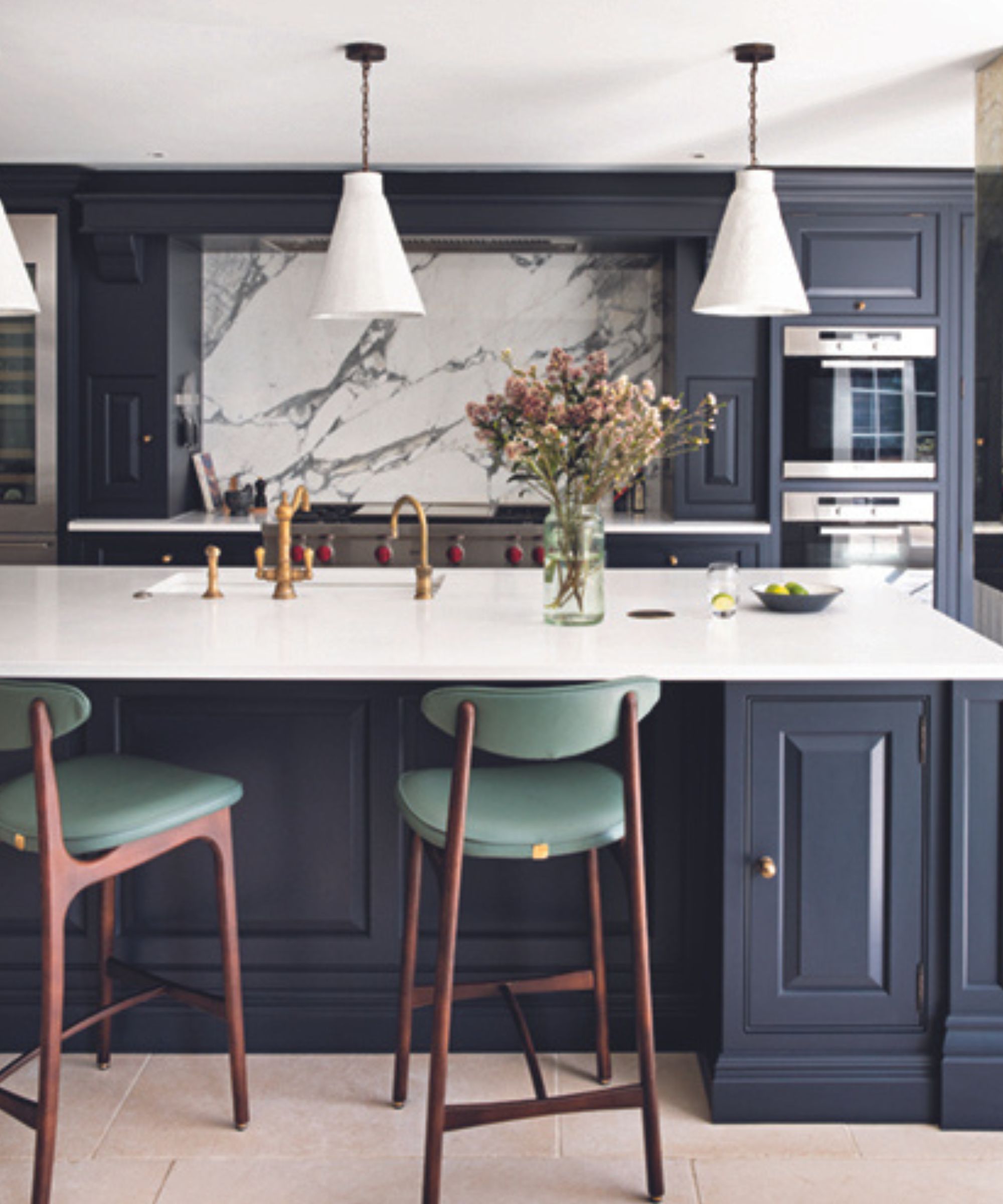
Quite a bit of money can go into a design project from start to finish, so understanding how your money is being managed and why is of the utmost importance. Speak with designers candidly about money to make sure that yours is in good hands.
11. How do you handle pricing and billing?
Not every designer handles pricing and billing in the same way, so whether you're a first-time renovator or have quite a bit of experience under your belt, it's always smart to take a second look. Some designers factor additional services into a single tab, while others factor in costs in other ways.
'There are many different ways for a designer to run their business. Before signing on with a designer, you should know exactly what is included in your contract. For example, some designers work off a flat fee but cap the hours or the number of revisions and don't reduce the fee if the hours are not needed; others will track their time and charge by the hour. The more information you can provide about your level of expectations the more accurate the design services fee will be,' says Trish Knight, interior designer and co-founder of Knight Varga Interiors.
12. How will we ensure the project stays within budget?
Be clear about setting your budget at the beginning of the process, and be sure to ask how the designer will stick to that budget throughout. You'll likely discuss this at the very start, but asking the right questions about how they'll handle the money is key.
'Ask them how they honor budget throughout the project for both construction selections and furniture. If they don’t have a system in place, that could be a red flag,' says Annie.
Make sure you're completely honest about your own budget as well – it's easy to get swept up by grand ideas and gorgeous interiors, but keeping it realistic will ensure you're not setting unfair expectations for yourself or your designer.
'It’s important to be transparent with your designer during the initial meetings about your budget for the project. A client-designer relationship is all about trust, so it’s imperative to be upfront when it comes to a comfortable number for you and your family before getting started,' say Kristine Renee and Deborah Costa of Design Alchemy.
13. How do you source materials, furniture and other design elements?
It's also vital to ask where all the materials included in the project will come from. Will you be responsible for purchasing those items? Will the designer purchase them within your overall budget? Or will the designer purchase them and add an extra cost? Ensure you know the ins and outs of sourcing materials, furniture and accessories before giving anyone the green light with your money.
Establish a clear understanding of the project's timeline

Finally, you'll want to know exactly what you're getting yourself into before going ahead with a design project – and sometimes the process takes months. Know how long you're realistically committing to a project before giving the go-ahead.
14. What will the entire design process entail?
'I always encourage individuals to ask their prospective designers about project planning and phasing strategies. Choosing a designer isn't just about aligning visions; it's about ensuring they have the capacity to fully realize that vision and dedicate the necessary attention your project deserves,' says Becky Shea, interior designer and founder of Becky Shea Design.
Know a bit about what will go into the project, what it will require from you and your home, and how much disruption to your daily life the project will cause. Hopefully, the designer you choose will be transparent with you throughout the project regardless, but it's good to have a general overview before you begin.
'The instant a project captures our interest, we leap into action, thoughtfully mapping it out on our calendar. This method is not just about scheduling; it's about providing a clear, realistic view of both the scope and timeline to our potential clients from the outset. It's a practice I believe is essential because hiring a seasoned professional who is committed to your home's transformation can smooth the entire process for all parties involved. It's about creating a space that you love, with the peace of mind that comes from knowing you're in expert hands,' Becky adds.
15. How much time will this project take to complete?
Renovation or redesign projects always seem to take just a bit longer than originally planned, but you can reduce this element of surprise by having a candid conversation with the designer about a realistic estimate of the timeline. Arezoo recommends asking how long a renovation like yours will take before starting out.
'If clients have a specific timeline they need or would like to adhere to, they should communicate that with us as early as possible, so we can try to accommodate this (or let them know if it's completely unrealistic),' she says.
Trish adds that often, people expect the timeline to be much shorter than it is in actuality. She suggests going in with an open mind and planning it out alongside the designer to get a clearer picture.
'You should also have a clear understanding of the length of time that will be required to get the results you see in magazines – great design doesn't happen overnight. It is a cumulation of conversations between designer and client, visits to the site and hours of thought, design and drawing,' she says.
Though asking all these questions may take time and energy, they're time and energy well spent. By getting all of the difficult queries out of the way, you'll be well on your way to a smooth, easy, stress-free process that only leaves you with a beautiful home.
Sign up to the Homes & Gardens newsletter
Design expertise in your inbox – from inspiring decorating ideas and beautiful celebrity homes to practical gardening advice and shopping round-ups.

Abby was the Interior Design News Editor at Homes & Gardens and is now studying for her Master's degree in Journalism at City University, London. Prior to joining our team, she worked with Better Homes & Gardens, where she wrote and edited content about home decor, gardening tips, food news, and more. She studied Journalism and English Literature at New York University and moved to London to pursue her love of writing in 2023.
-
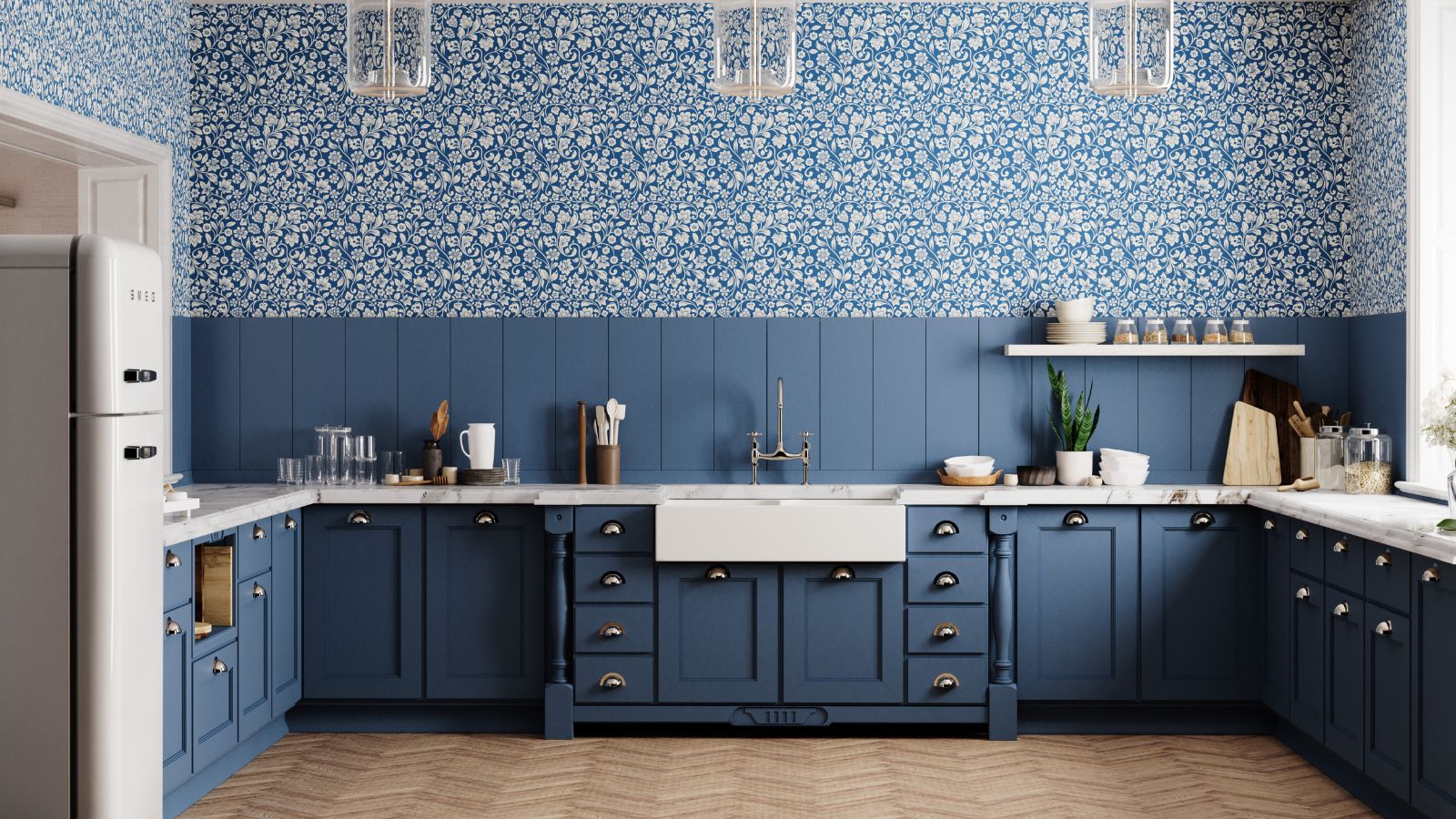 Do cleaning products expire? Professional cleaners warn time could make them ‘less effective, and in some cases, irritating to use’
Do cleaning products expire? Professional cleaners warn time could make them ‘less effective, and in some cases, irritating to use’For the best results, it pays to stay on top of the timeline of your cleaning products
By Chiana Dickson Published
-
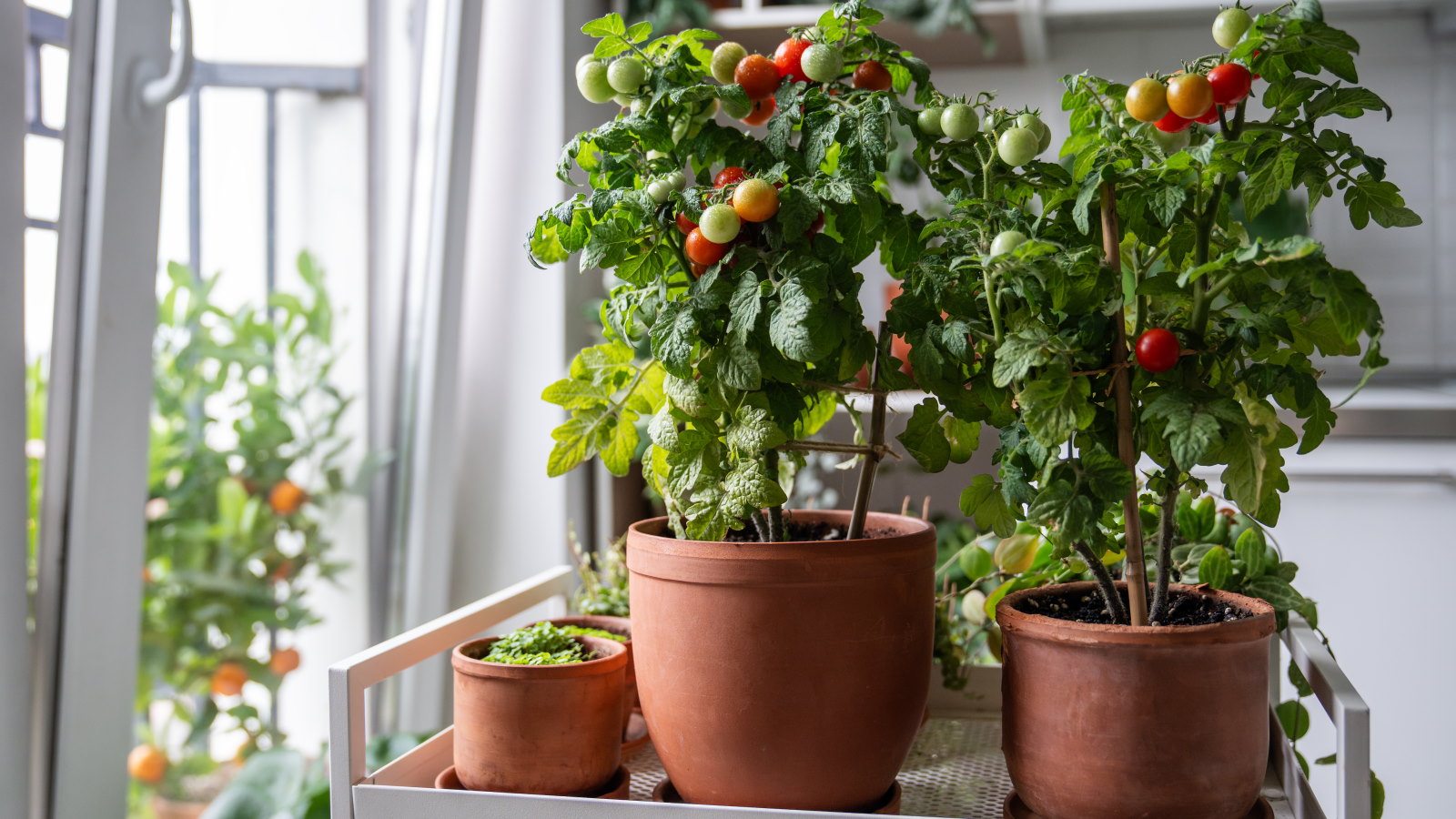 7 of the best tomatoes for growing in pots - expert growers pick their top varieties ideal for large harvests from containers
7 of the best tomatoes for growing in pots - expert growers pick their top varieties ideal for large harvests from containersYou can enjoy bumper homegrown harvests in small spaces
By Drew Swainston Published